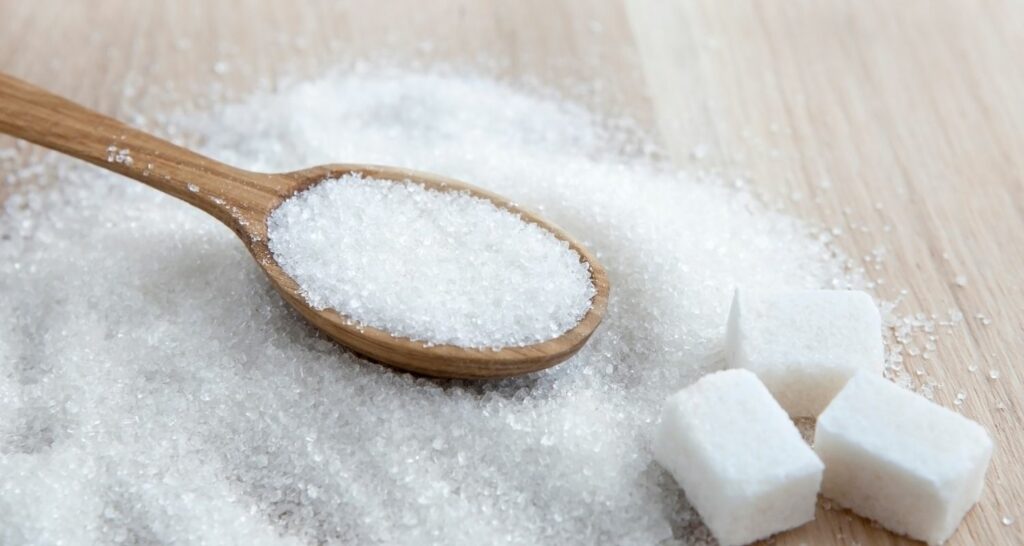It’s that time of year again, the holiday season is behind us and there’s not much to look forward to unless you just love cold, grey weather. And then there’s that matter of all the sweets we indulged in all of 2020, which may result in your pants being too tight to button. It’s enough to leave you wondering how to do a sugar detox.
Which, for the record, is probably a really great thing to be wondering about.
I’ve written before about the dangers of high blood sugar. They are many and serious. In fact, almost half of the citizens in the U.S. are either at risk of developing diabetes or already have it.
The problem is that the symptoms of rising blood sugar levels can be stealthy. Many do not know that there’s a problem until it’s a big problem for their health.
Let’s take a look at some of the symptoms of out of control blood sugar and how to kick sugar to the curb — at least for a while.
Symptoms Of High Blood Sugar
When your blood sugar starts to get out of hand, this is what we call insulin resistance. Insulin resistance is when your body no longer responds properly to insulin, causing blood glucose levels to rise.
Insulin resistance can be the first step in the development of type 2 diabetes. It may not even present with glaring symptoms — which makes it imperative that we stop this beast in its tracks before it can do real damage to your health.
Sometimes, my patients complain of a few common problems that actually, time and again, turn out to be insulin resistance. I’d like to take this opportunity to remind you that things like brain fog, fatigue, and the inability to lose weight aren’t just annoying parts of life that you have to deal with. These are legitimate symptoms that are common. That doesn’t mean they are normal. Your natural state of being is not one of misery — you were built to thrive!
If you are experiencing any of the following symptoms of insulin resistance, be sure to give your blood sugar a look. It may not be what’s causing your issues, but statistically, it’s very possible.
Brain Fog
Brain fog is one of those symptoms that seems just about everyone is complaining about these days. Brain fog is a little hard to define, as well. It can be used to describe an overall lack of focus, memory problems, difficulty concentrating, or feeling less “sharp” than you usually do.
Brain fog can be a symptom of a whole host of other conditions and can be caused by stress, hormones, depression, or anxiety.
Sometimes, when you’re experiencing brain fog without a clear reason, it can be a sign of elevated blood sugar.
Fatigue
Feeling tired is another universal symptom right now. But I’d urge you to remember that you are not meant to be tired All. The. Time.
OK, if you have a newborn or work a swing shift or something like that, you’re probably going to be tired all the time.
But for the rest of us, fatigue is sometimes a symptom of an underlying medical condition. Depression or insulin resistance are common culprits.
Love Handles
If you’re putting on weight effortlessly, and you can’t seem to get it off no matter what you try…it could be that blood sugar issues are causing your troubles.
When blood sugar is out of control, you are more likely to gain weight. In a cruel twist of fate, you’re more likely to feel hungrier, too. Oh, and you’ll feel extra tired. Plus your brain is foggy.
Overall, this is a recipe for weight gain disaster, right?
The good news is, if you can power through, and find a form of exercise you enjoy, it can be the answer to turning everything around. Exercise helps tremendously with insulin resistance and its symptoms of fatigue, weight gain, and brain fog.
How To Do A Sugar Detox
One good way to start a plan for breaking through this trifecta of debilitating symptoms is to do a sugar detox.
A sugar detox is exactly what it sounds like — you cut added sugar from your diet for a period of time (usually 7-10 days) to let your body reset. Sugar is kind of addictive, and giving your body a break from it can help you stop wanting more of it.
If you’re just starting out on this journey to lower blood sugar and reduce your sugar intake, I’d recommend just cutting out added sugars. This means you don’t need to go “full keto” to start experiencing results. Often, I find that patients who try to cut out all carbs end up feeling too restricted and fail — which is not a fun place to be when you’re trying to develop healthy, sustainable habits.
For the purpose of the sugar detox, cut out the following for a week or so:
- All the processed foods you can
- Cookies
- Cakes
- Pies
- Candies
- Sugar in your coffee
- Soda
While you’re cutting these items out, add plenty of the following in:
- Healthy fats (think olive oil or avocado)
- Vegetables of all kinds (try to fill half your plate)
- Water and unsweetened teas
- High-quality meats
- Fruit (a great sub for desert)
It’s important that you don’t try to skip meals or start some crazy intense workout routine at the same time as your sugar detox. Just start with this one step, and after 7-10 days see how you feel…I promise you won’t feel worse.

After The Sugar Detox
Once your sugar detox is complete and you’re feeling better, perhaps a little more clear-headed and a tad less tired, you can start adding in a few other elements of a healthy, diabetes-preventing lifestyle.
I like to think of the sugar detox as a gateway drug to an anti-inflammatory diet (my favorite for health and longevity).
If you tired the sugar detox and are looking for a little more healthy inspiration, I’d like to invite you to have a free consultation with me to see if I can help you get a little further along your path to your healthiest self.
You can schedule the call here.
Resources
“Statistics About Diabetes | ADA – American Diabetes Association.” https://www.diabetes.org/resources/statistics/statistics-about-diabetes.
“Insulin Resistance & Prediabetes | NIDDK.” https://www.niddk.nih.gov/health-information/diabetes/overview/what-is-diabetes/prediabetes-insulin-resistance.
“Fatigue in Patients with Diabetes: A Review – NCBI – NIH.” 23 Mar. 2010, https://www.ncbi.nlm.nih.gov/pmc/articles/PMC2905388/.
“Fatigue in Women with Type 2 Diabetes – NCBI – NIH.” 19 Jun. 2012, https://www.ncbi.nlm.nih.gov/pmc/articles/PMC4006984/.
“What causes the insulin resistance ….” https://www.ncbi.nlm.nih.gov/pmc/articles/PMC4038351/.


